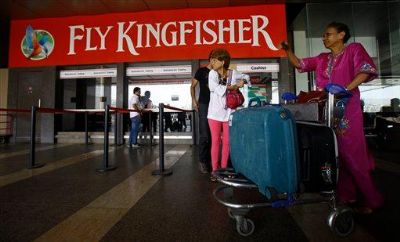New Delhi, Jul 25: Congress leader Priyanka Gandhi Vadra on Saturday attacked the Yogi Adityanath government over its handling of the Covid-19 crisis, saying that at a time when there is an "explosive" rise in cases, the state dispensation's "no test is equal to no corona" policy can lead to a "more frightening situation".
In a letter to the Uttar Pradesh chief minister, the Congress general secretary said that the situation is getting serious and the battle against the pandemic cannot be fought just by publicity and managing news.
Priyanka Gandhi said she hopes the chief minister will take "big and effective" steps that will assure people that the government is committed to protect their lives and they will not be left to God for protection.
"By showing the fear of coronavirus, corruption is thriving. If this is not reined in, the battle against coronavirus will turn into a disaster," Priyanka Gandhi said.
Noting that 2,500 cases of coronavirus were reported in UP on Friday, she said almost all the metros were flooded with Covid-19 cases, but now even the villages were not unaffected by its spread.
"Quarantine centres in UP are in a pathetic state. In some places, the situation is so bad, that people are fearing mismanagement more than the coronavirus. Because of such a scenario, they are not stepping out of their homes for getting tested," Priyanka Gandhi said.
"This is a major failure of the government," she asserted.
The state government by believing in the "no test = no corona" mantra has adopted a low testing policy, she alleged in the letter written in Hindi.
"There is an explosive rise in Covid-19 cases. Till testing will not be increased in a transparent manner, the fight against the pandemic will be incomplete and the situation can become more frightening," she said.
"Your government claimed that there is provision for 1.5 lakh beds, but with only about 20,000 active infected cases, there is a scampering for beds," she said.
If there is a huge crowd in front of the hospitals, then why is the UP government not constructing temporary hospitals on the lines of those set up in Mumbai and Delhi, Priyanka Gandhi asked.
Availing medical facility is the fundamental right of every citizen, she asserted.
"The prime minister is a Member of Parliament from Varanasi, the defence minister is from Lucknow, many other Union ministers are from UP. Why can't temporary hospitals be opened in Varanasi, Lucknow, Agra etc." Priyanka Gandhi asked.
She suggested that temporary hospitals can be operated by the Defence Research and Development Organisation (DRDO), the Army and the paramilitary, or if need be, the DRDO hospital can be brought to Lucknow.
Also, central facilities set up in Delhi can also be used for border districts, Priyanka Gandhi said, adding that their utilisation is not being maximised there.
Noting that home isolation was a good step, she said it should not be implemented in haste.
Informed decisions should be taken on key matters related to home isolation like what will be the arrangement for monitoring patients, who needs to be informed if the patient's condition worsens and what will the medical facilities cost in home isolation, she said.
What will be the arrangement for checking the temperature and oxygen level of the patients in home isolation, she further asked in the letter.
The government should do a complete mapping of it and give complete information at the local level to the public, Priyanka Gandhi said.
The Congress general secretary said that she realises, that often the state government feels that the Congress' suggestions are given only from a political point of view.
"This was evident from the response of your government while we were trying to get buses for UP workers who were walking home," she said.
"I want to assure you once again that protecting the health and life of the people of Uttar Pradesh is our biggest sentiment at this time. We are continuously striving with constructive support and a spirit of service," she said in the letter.
At this time when the pandemic is growing rapidly, the Congress stands with the people of UP and is ready to give full support to the state government, she said.
Tightening its grip over Uttar Pradesh, Covid-19 claimed a record 50 lives in the state on Friday as the deadly virus infected 2,667 people more in the largest single-day spike till date.






Comments
Add new comment